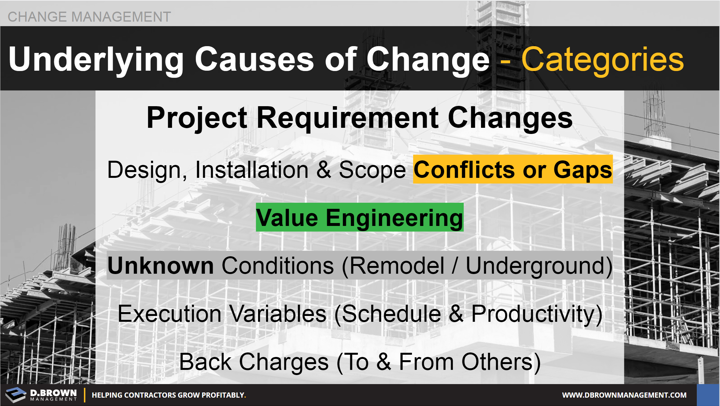Changes are a fact during construction projects, though many can be mitigated through rigorous management of the design and planning processes.
Some of those categories might include:
- Project requirement changes: Remember that this project is simply there to serve as a step in the project owner's value stream. A lot changes in their business from the start of the design process through the construction process.
- Gaps, lack of clarity, or conflicts that occur during design, contracting, and installation phases.
- Value engineering, which is great for all parties
- Unknown conditions that are unknown during design or bidding typical for underground or remodels
- Execution variables, including schedule changes, compressed work, stacking of trades, or other factors that impact productivity
- Back charges to or from others typically related to conflicts during installation
What are the categories of underlying causes for your company?
Which ones come up the most?
Could any of them have been identified earlier?
Deeply understanding the underlying reasons for changes allows you to identify them early in the preconstruction process and adds the most value to the project owner.

